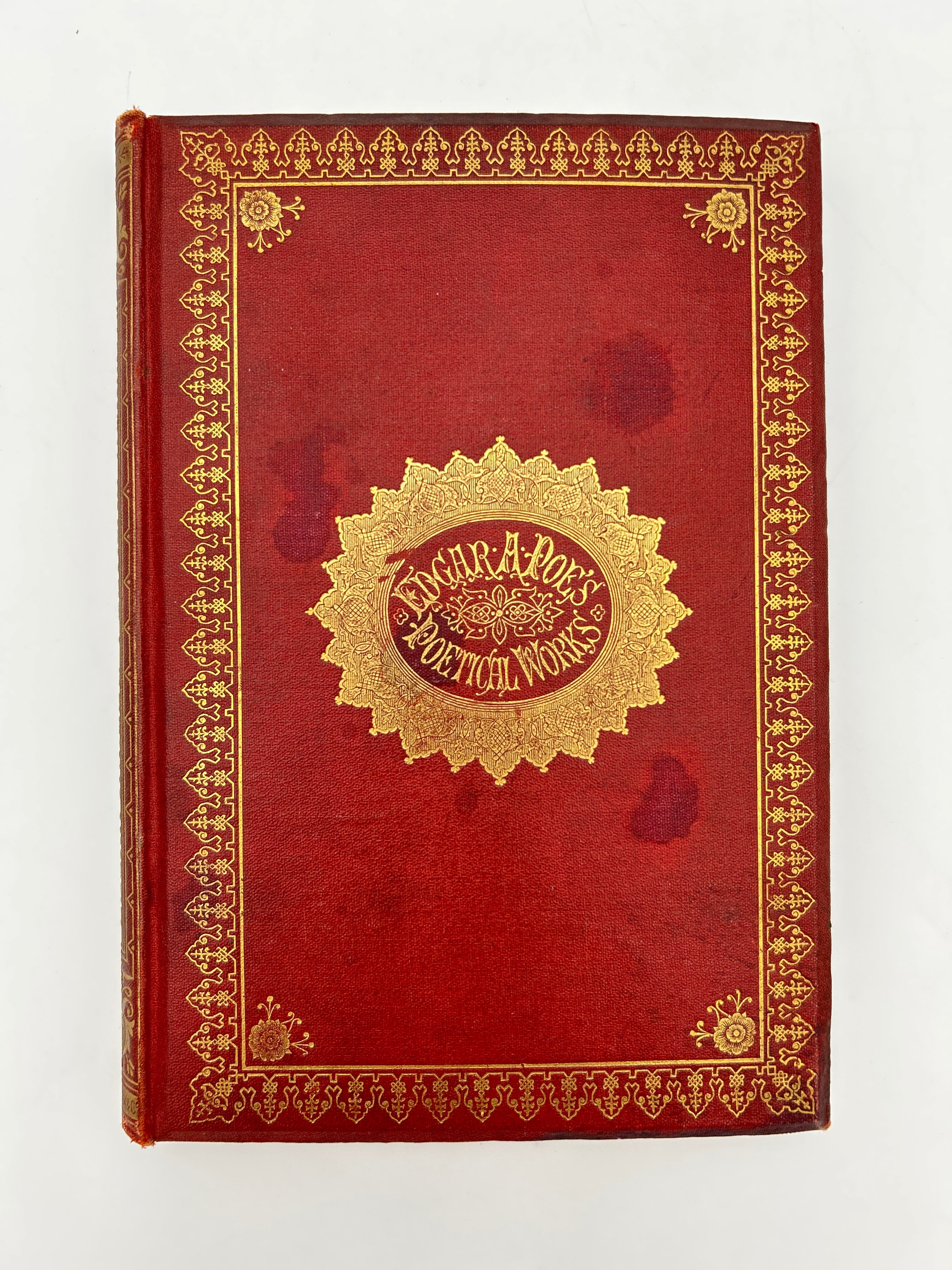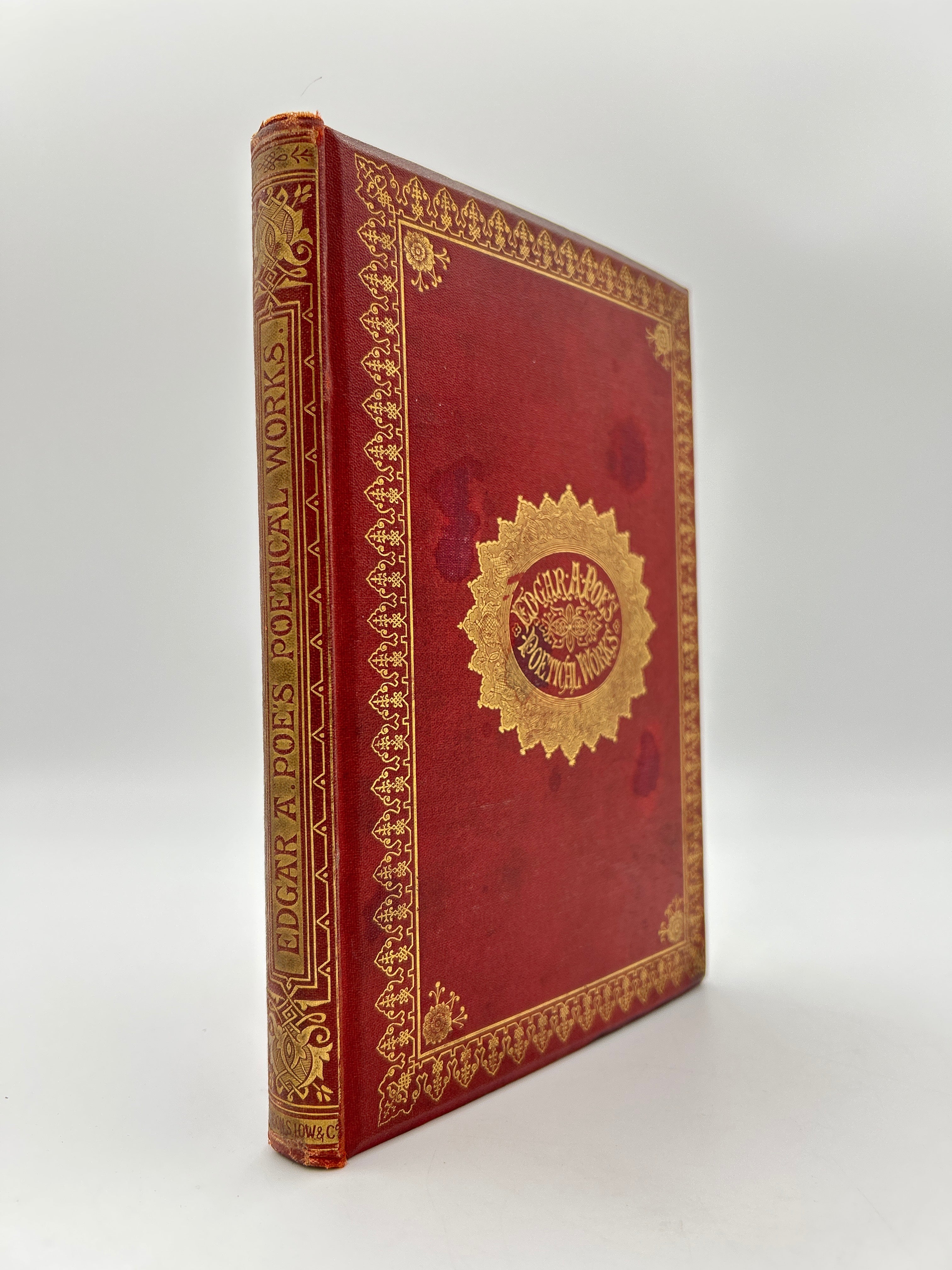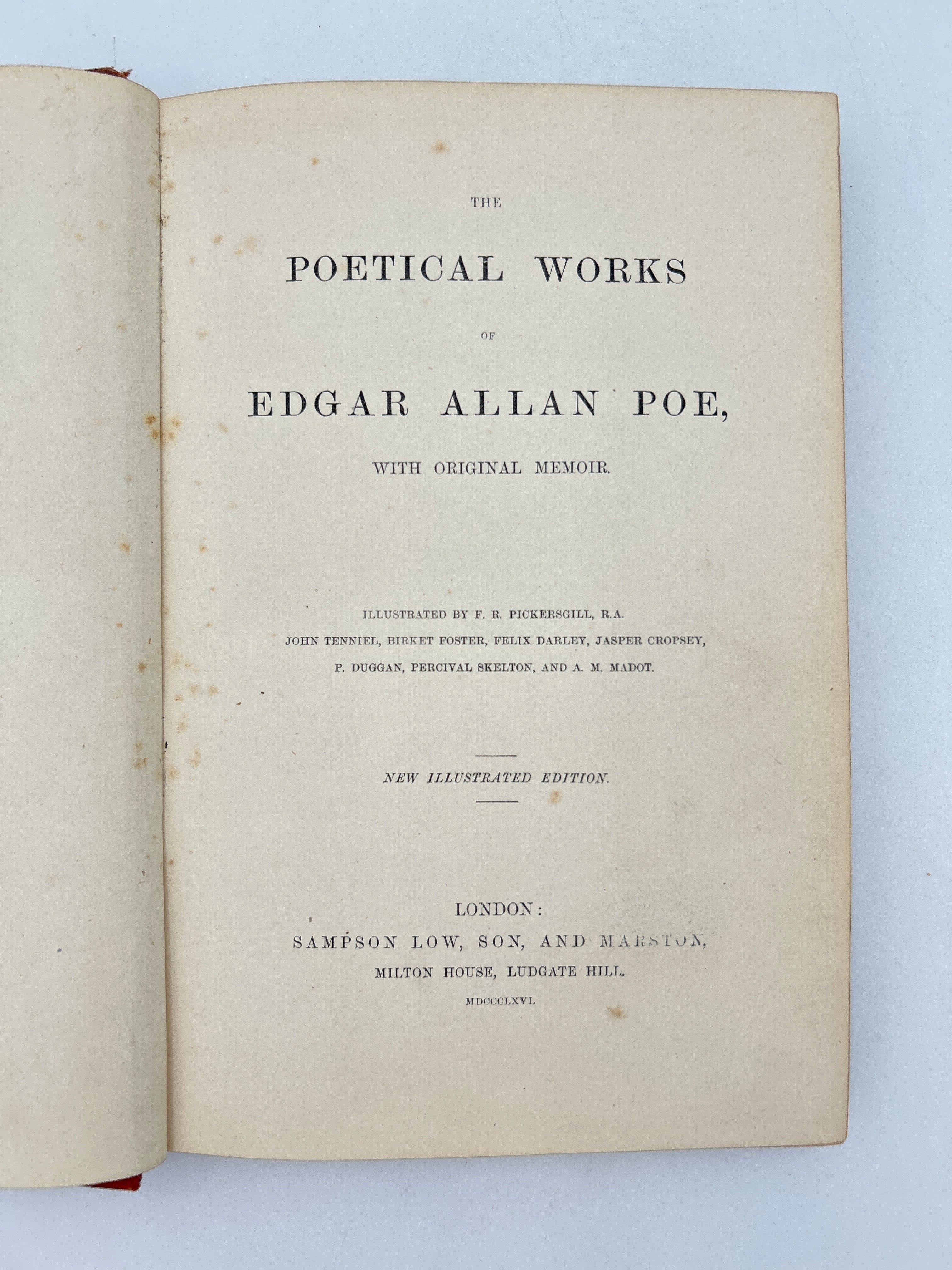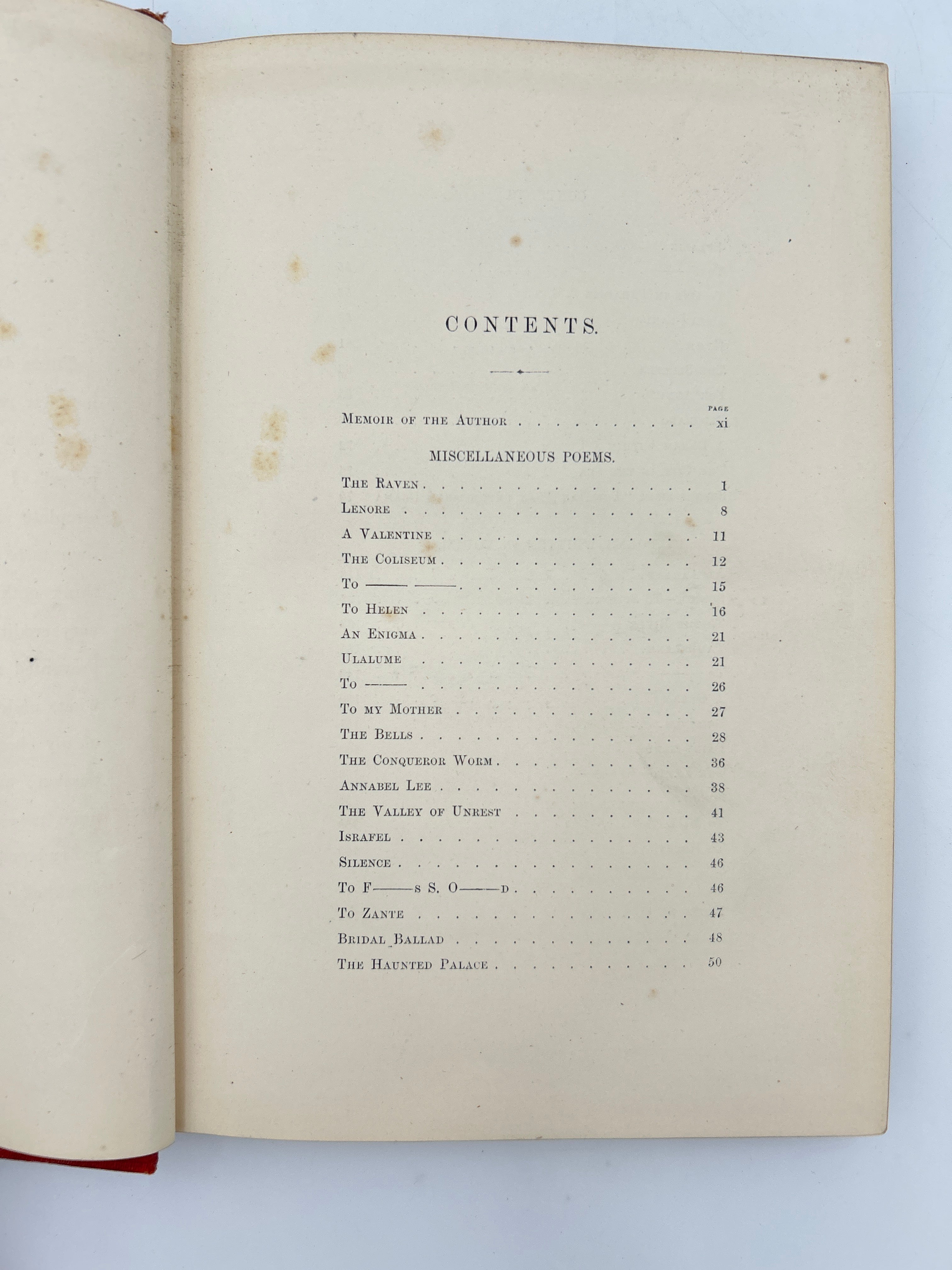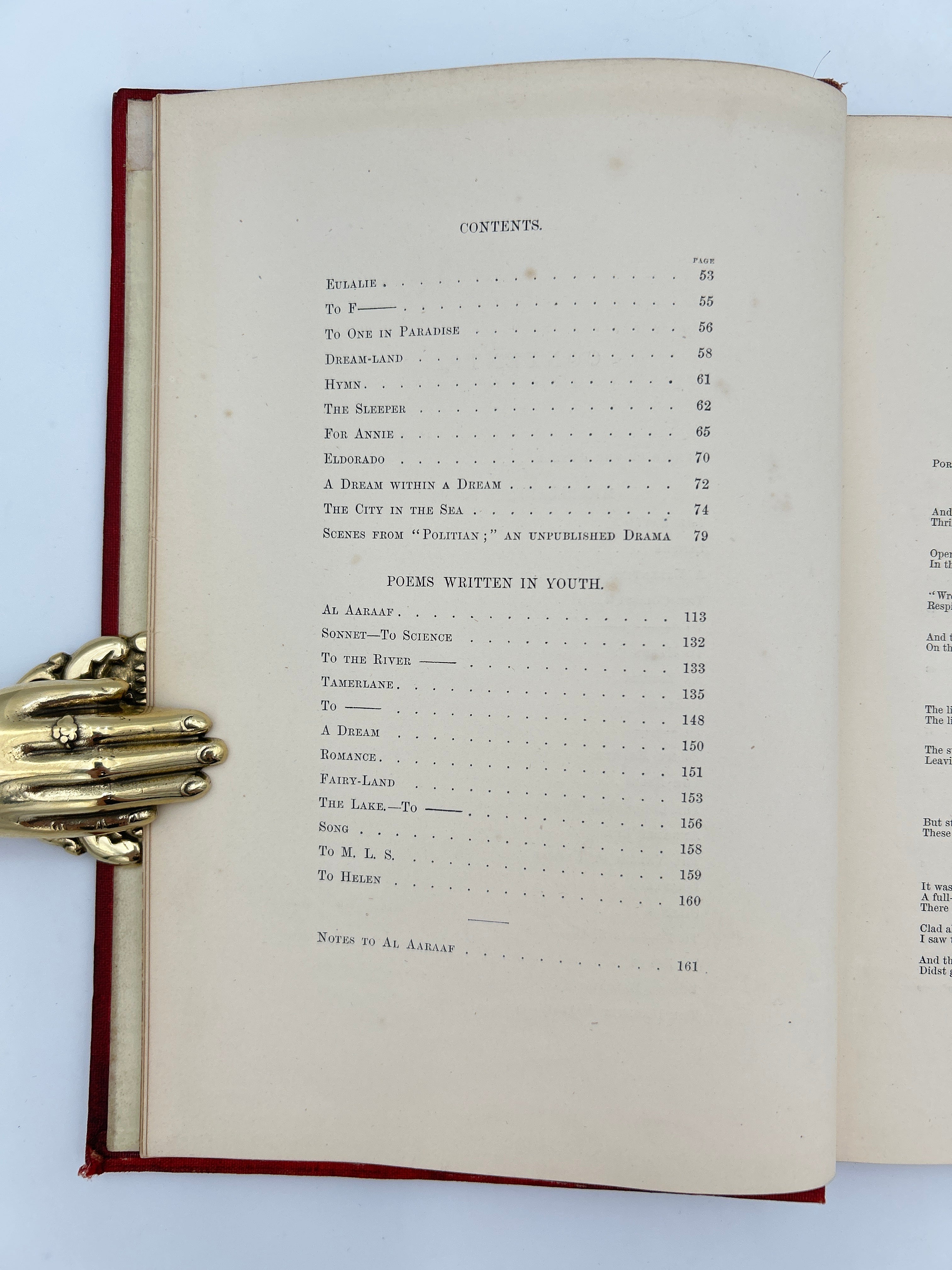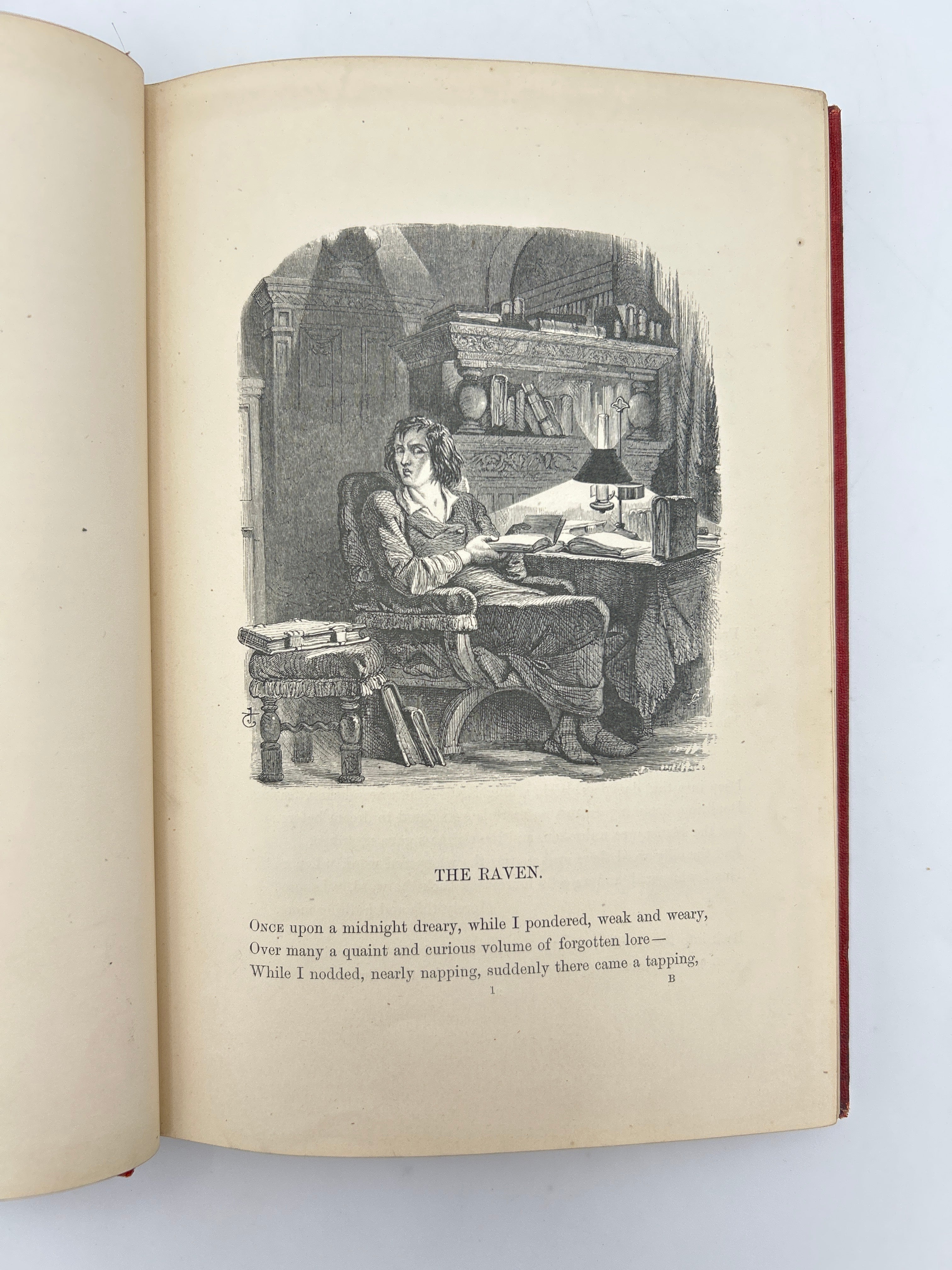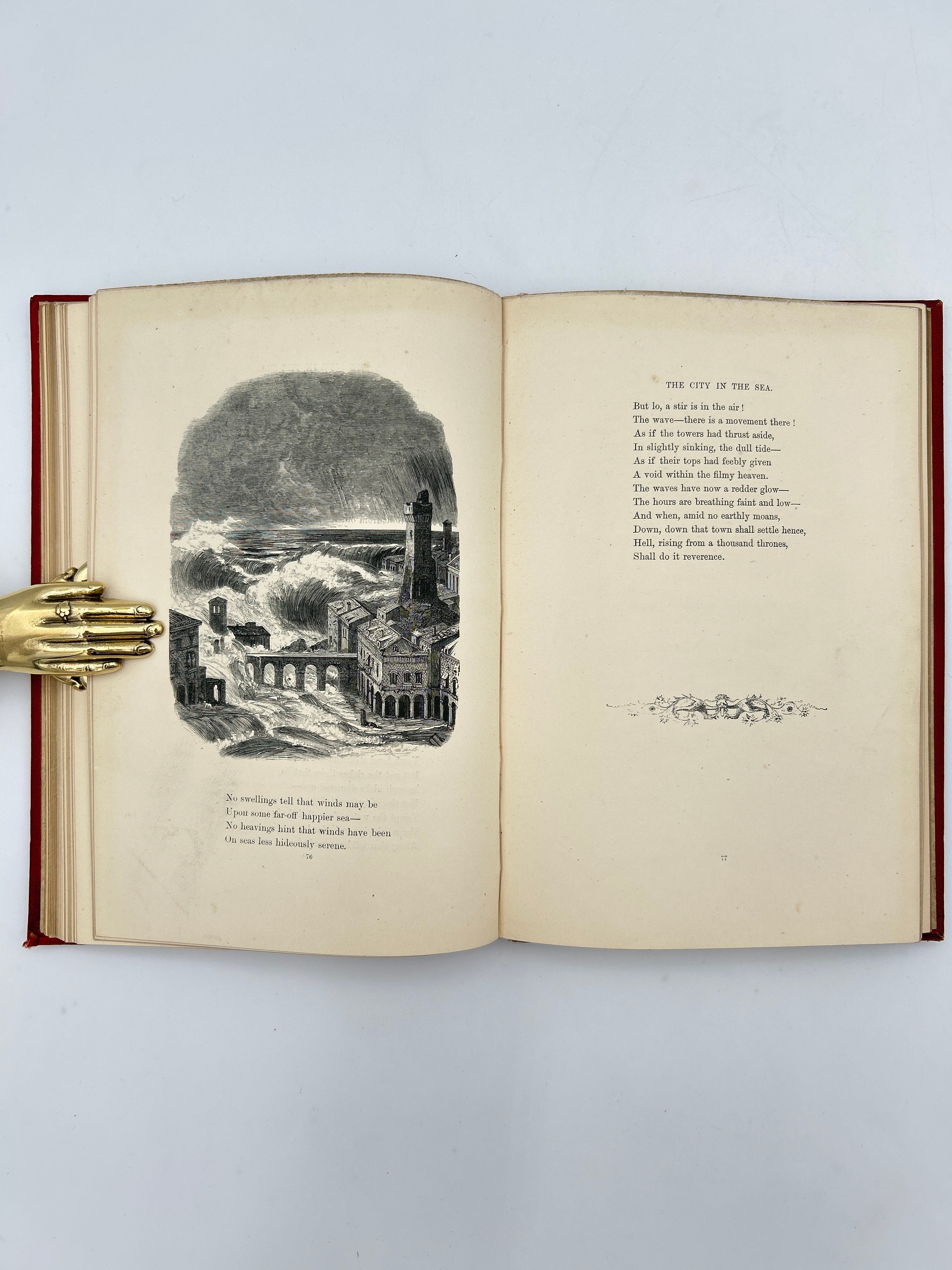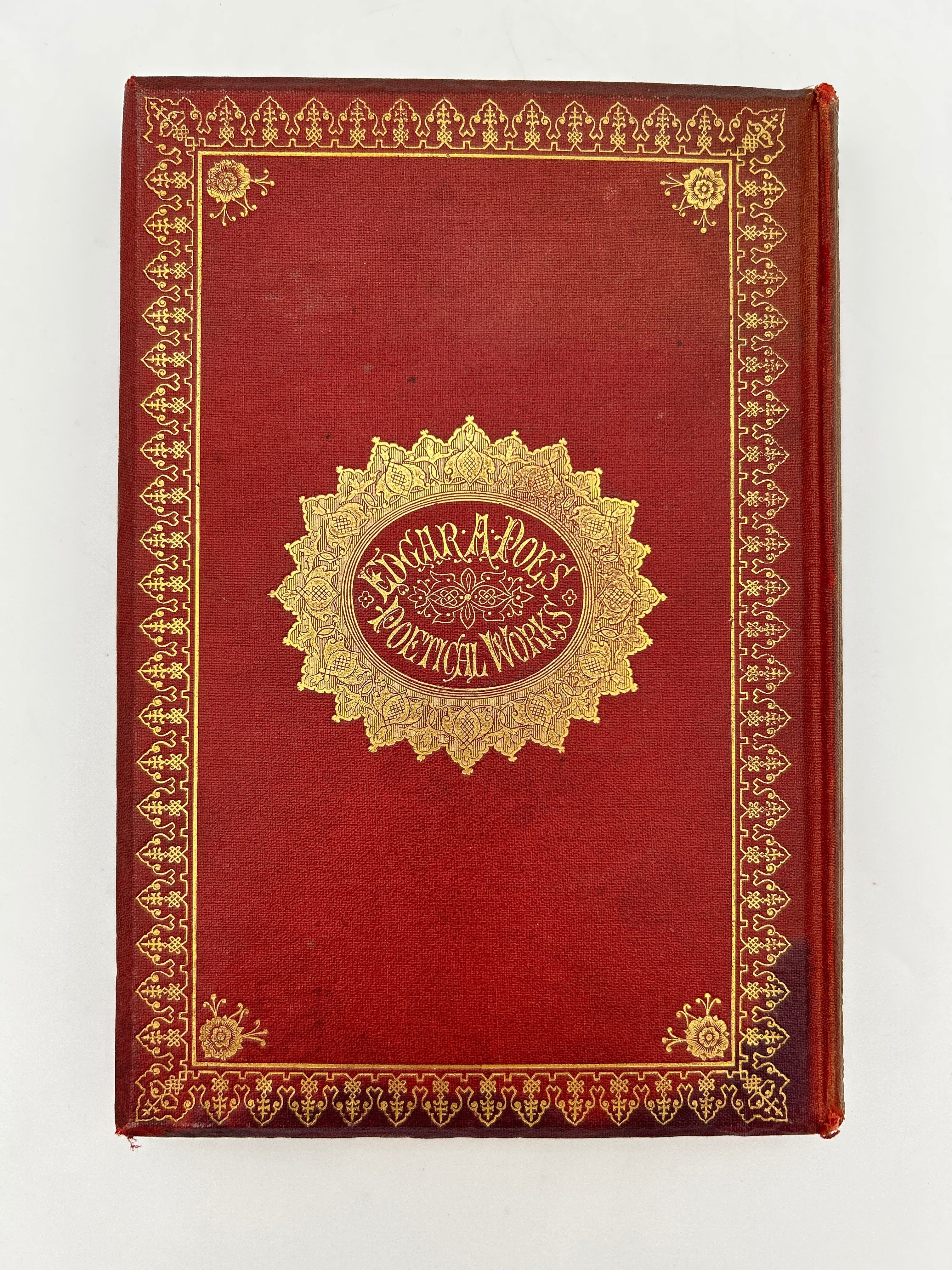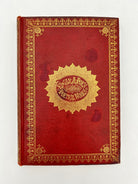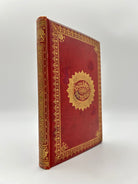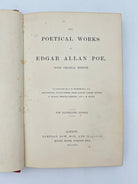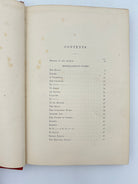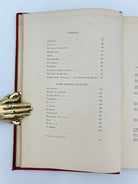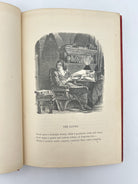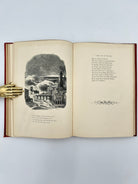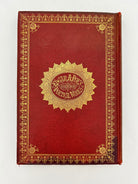Edgar Allan Poe Poetical Works
Couldn't load pickup availability
5b, Edgar Allen Poe. with memoir, Illustrated by F.R. Pickersgill, R.A., London; 1866
Description
Edgar Allan Poe (1809–1849) was an American writer, poet, editor, and literary critic best known for his macabre and gothic tales, such as The Tell-Tale Heart, The Fall of the House of Usher, and his famous poem The Raven. Born in Boston, Poe faced tragedy early in life with the loss of his parents and later struggled with poverty, professional instability, and personal demons throughout his career. He is often credited with pioneering the detective fiction genre with The Murders in the Rue Morgue and significantly influenced science fiction and horror literature. His work is known for its dark romanticism, exploring death, madness, guilt, and the supernatural. Despite his relatively short life, Poe's impact on American and global literature remains profound, making him a central figure in the literary canon.
Poe's political works reveal a complex and often cynical view of American society and politics. He was not overtly political in the traditional sense, but he often critiqued the institutions of his time through satire and allegory. In stories like The Man That Was Used Up and Mellonta Tauta, Poe mocked political figures, militarism, and the blind optimism of progress, reflecting skepticism about democracy and the American political experiment. He distrusted the press, mob mentality, and populism, showing a preference for reason and individual intellect over mass movements. While not a partisan, Poe’s political undercurrents reveal a writer deeply disillusioned with the direction of American society.
The first poem in this collection is The Raven. The Raven was first published in January 1845 in the New York Evening Mirror and quickly catapulted Edgar Allan Poe to national fame, becoming one of the most celebrated American poems of the 19th century. Written in a tightly structured trochaic octameter and known for its haunting refrain of "Nevermore," the poem showcases Poe’s mastery of rhythm, internal rhyme, and alliteration. He reportedly wrote The Raven with careful attention to sound and effect, even describing his writing process in his essay The Philosophy of Composition, where he claimed the poem was crafted with the intention of producing a singular emotional impact—melancholy. The poem's dark atmosphere, psychological depth, and musical language resonated with readers and critics alike, solidifying Poe’s reputation as a literary innovator. Over time, The Raven has become one of the most iconic works in American literature, frequently referenced in popular culture and studied in classrooms around the world.
Notes
Beautiful red leather with gold embossing front, back and spine, clear plastic dust jacket, three stain spots on front, otherwise very fine condition.
